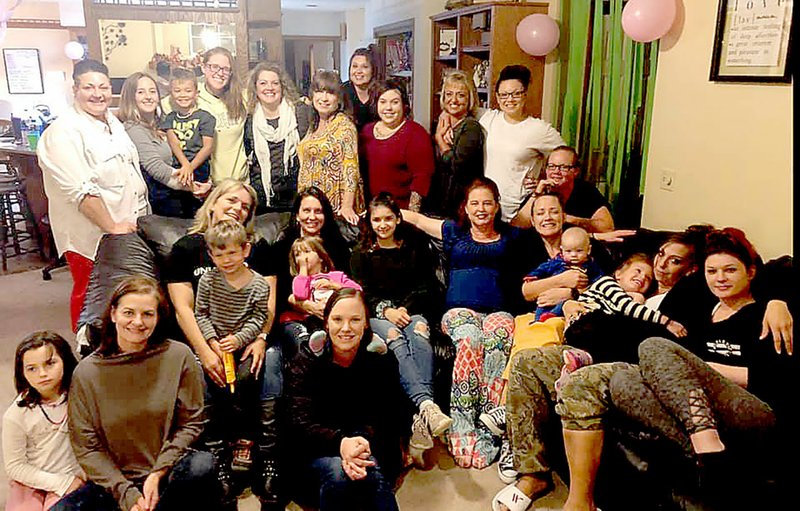In a quiet neighborhood, not far from Riordan Hall, some 16 women are getting a second chance. Oasis of Northwest Arkansas, a sober, transitional living program is helping women recover from addiction.
While it may seem surprising that a program for women with addictions is located on a tree lined suburban street, the location is part of the recovery process. The women are learning to live in a community.
Purses with Purpose
On December 16, Oasis of NWA will host a fundraising luncheon at the NWACC Walmart Auditorium. Judge Stacey Zimmerman is the keynote speaker. The purses — filled with fun items — will be sold via a silent auction. For more information or to purchase tickets, visit the Oasis of NWA website, https://www.oasisfo….
"That's what recovery is all about," Executive Director LaDonna Humphrey said. "Recovery is about assimilating back into the community."
For some women, living in in one of the two Oasis houses is the first time they've been involved in the upkeep of a home. They may be learning about mowing lawns and loading dishwashers for the first time.
The neighbors, Humphrey said, are very supportive. Oasis, she said, has many community partners.
There are requirements for the women in the program. They must be working full time, or in school and working part time. They have to participate in weekly meetings with all Oasis residents, weekly counseling sessions through the program, another weekly meeting for a recovery program in a local church as well as three meetings a week for their own recovery program like AA or Celebrate Recovery. The women stay very busy, Humphrey said, and if they can't keep up they can be dismissed from the program.
Some of the women have custody of their children when they enter the program and bring them along to the Oasis house. That means they have to arrange babysitting in order to attend all the meetings. Often, other women in the program help.
Children who live with relatives or in foster care, are able to visit their mothers in the homes.
Residents are responsible for their own meals, although the program provides some groceries and sometimes volunteers cook meals. The Sunday night weekly meeting always includes a meal, Humphrey said. That's one way they encourage the group to become a community.
"It's more than just a bed to sleep in," she said, "We expect a lot out of these women."
In return, they get help finding a job. Some will work at the coffee shop the program runs on the NWACC campus. Others will find a job with some of the businesses that partner with Oasis. Employment help is always on a case by case basis. Humphrey helps them find a position that can use their skills. If they can't find a job quickly, they'll be asked to volunteer in the community.
They'll also get the chance to learn life skills like cooking and sewing, changing a tire and parenting.
Each resident needs to have a sponsor -- usually someone from their recovery program -- and a mentor assigned by the program. Recovery can be very isolating, Humphrey explained, so the one on one relationships are important.
Besides Humphrey, whose office is in the basement of one of the houses, there's a live-in house manager who keeps on eye on both houses. There's always someone on site, Humphrey said.
At the end of their year in the program, the women have a graduation ceremony and a chance for a new life.
General News on 11/13/2019

